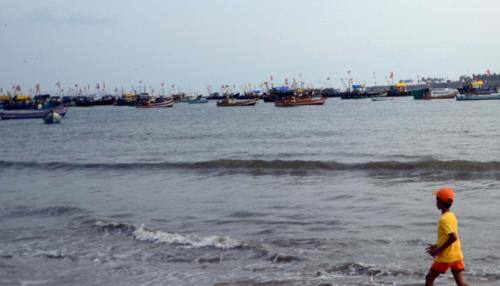- News>
- Environment
Human-induced climate change may cause significant rise in sea levels, warns IPCC

Valerie Masson-Delmotte, co-chair of IPCC Working Group I, said at the Australian National University (ANU) that human influence on the climate has contributed to changes in the warming of the Greenland ice sheet, something which is affecting sea levels the world over.
Canberra: Human-induced climate change has the power to cause a significant rise in sea levels over the next 100 years, a scientist from the Intergovernmental Panel on Climate Change (IPCC) said on Tuesday.
Valerie Masson-Delmotte, co-chair of IPCC Working Group I, said at the Australian National University (ANU) that human influence on the climate has contributed to changes in the warming of the Greenland ice sheet, something which is affecting sea levels the world over.
"Sea-level rise has accelerated in recent decades, mostly due to an increased contribution of the Greenland ice sheet," Xinhua news agency quoted Masson-Delmotte as saying.
"Summer warming above the Greenland ice sheet has been strongly related to human influence on the climate system. Sea-level rise is enhancing coastal submersion risks."
She said that despite a greater global awareness of the effects of climate change, recent extreme weather events such as those which have been witnessed in the Arctic, France and Syria, can all be traced back to human influence.
"The drought in Syria from 2007 to 2010 was unusual in a multi-centennial context, and human influence was discerned in the two components of drought -- lack of rainfall and increased temperatures," he said.
"This occurs in a region where climate models project increasing water stress in a changing climate, due to a change in large-scale atmospheric circulation for the Mediterranean area."
Meanwhile she added that recent flooding in France's "bread basket area" came about as heavy rainfall in that region tends to occur in a warmer climate.
"Warmer seas and warmer air allow the atmosphere to transport more moisture, so that the same rare meteorological situation favouring heavy rainfall is associated with more intense rainfall in a warmer world," the climate scientist said.
"This event in France had major impacts on crop yields in our bread basket area."
